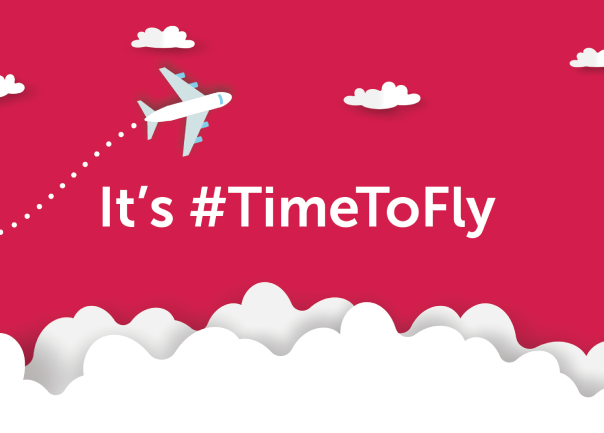
Australia could be headed for what’s been dubbed, the ‘great resignation’. A recent report shows 41% of the global workforce is likely to consider leaving their current employer within the next year.1 With SMEs the backbone of the Australian economy, attracting and retaining new talent will no doubt be a priority for many businesses in the next 12 months.
As part of efforts to retain and grow employee numbers, many organisations, according to Corporate Traveller, will be relying on travel to nurture important relationships.
“Business growth goes hand in hand with travel,” Corporate Traveller General Manager, Tom Walley said. “I’ve seen many of our clients increase the volume of their travel activity as they expand.
“Travelling for face-to-face meetings with existing staff, new employees and clients will be a focus for SMEs not only because of current staff shortages in many sectors but also to rebuild workplace culture, which for many organisations has taken a hit with employees working from home more often.
“Virtual platforms are excellent for information sharing but they just don’t cut it when it comes to building trust with someone and fostering relationships.”
Given this trend, Tom anticipates SMEs will shift focus to some key areas in 2022 including -:
- Driving customer loyalty. Beyond customer acquisition, SMEs are likely to focus on driving customer loyalty as a key business driver. Businesses will use every avenue to nurture customer relationships – from personalised communications with exclusive reward and discount offers in direct marketing, to social media and targeted online advertising. More businesses will encourage customer feedback to fine-tune their offerings and show customers they are valued.
- Supply chain simplification. The pandemic has uncovered the business sector’s reliance on complex global supply chains and the significant impact of any disruptions along the chain. At the same time, Australians are beginning to understand the importance of locally made products. Businesses will simplify their supply chains to localise some aspects to avoid disruptions and a dependency on other regions. Any shift to ‘Australian made’ will also help attract customers.
- Adopting more AI power. This year will see an increased reliance on AI-powered software and more businesses investing in software with AI capabilities for product innovation, services and customer interaction. AI will automate some processes, analyse data, improve the customer experience with predictive tools and increase visibility across various phases of the supply chain. Corporate Traveller is a case in point, with an AI-driven online booking tool that gets to know each traveller’s personal preferences for faster booking capabilities.
- Sustainability. With global warming in every news bulletin, businesses are feeling the pressure to travel greener. SMEs will be more actively working on more sustainable procurement strategies for each of the key categories including travel. Many are expected to pivot to likeminded suppliers and establish goals to reduce waste and emissions across their operations, goods production and travel. Businesses kick-starting travel programs will be looking at ways to offset air travel, carbon budgets and how to encourage employees to make more sustainable booking choices for accommodation and car hire.
- New payment methods. Cryptocurrency is gaining momentum in Australia and internationally – driven by looming concerns over growing inflation and the opportunities brought by major technological developments in decentralised finance. As a result, more businesses will diversify their payment mix to include crypto. Adequate government regulation of the crypto industry is expected to be implemented first, to decrease hesitancy and encourage a broader adoption of crypto.
- Flexibility beyond WFH. More businesses are already focussing on recruitment, however job applications are declining. To attract talent, businesses will offer flexible work arrangements, including remote, casual, part-time, job share and contract job options, along with better entitlements and, for some, higher pay. Some businesses, particularly consultancies, may offer equity or profit share to retain indispensable senior employees. Due to the tight candidate market, more work may be outsourced to agencies, freelancers or contractors.
- Better travel. Travel will resume as an important business activity, particularly for building relationships and making sales. While international borders could close again, businesses will continue to travel domestically where they can. As part of this we’ll see new travel policies and procedures to mitigate health and safety risks among travellers. Businesses will also review and upgrade their travel insurance and seek flexible cancellation policies that allow for last-minute changes.
[1] Microsoft, 2021 microsoft.com/en-us/worklab/work-trend-index/hybrid-work


